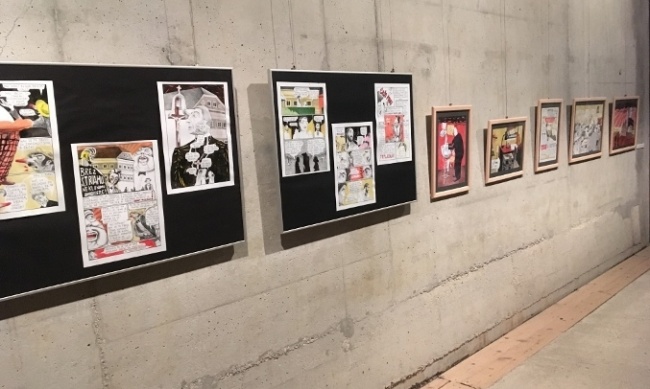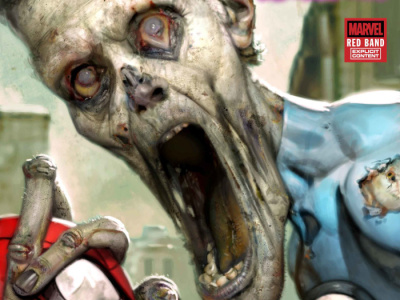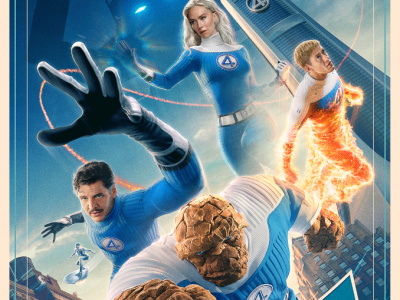I just returned from a few weeks off and am still catching up with everything going on leading into NYCC next week, but I wanted to hit a couple of topics that have come across my radar lately.
Denver Comic Con Rebrands. Facebook informed me this morning that Denver Comic Con, whose page I follow, just changed their name to Denver Pop Culture Con. A story in the Denver Post reports that organizers had been contemplating the rebranding for some time, and quotes Christina Angel, convention director for Pop Culture Classroom (the educational non-profit that puts on the event), that the name change comes "after much discussion and careful deliberation. We believe it more accurately reflects the breadth, depth, and inclusivity that has come to define Denver’s annual celebration of all things pop culture."
While the "pop culture" rubric fits comfortably on just about any large fan convention these days, I found Denver to be a fairly comic-focused show the year I attended (2016, I think), with a large artist alley and a couple of big-name creators on the marquee. It certainly has as much of a claim to being a "comic con" as anyone else doing these kind of events.
But, as we all know, San Diego Comic-Con successfully defended its trademark on all permutations of the term "comic con" last year and recently convinced the court to impose a punishing $4 million judgment for legal fees on the infringers, the organizers of Salt Lake FanX (formerly Salt Lake Comic Con). Denver was not party to that suit, but the organizers gave a deposition in support of the Salt Lake group. Once the dust settled, they were apparently not interested in applying for a license to use the term "Comic Con" from SDCC, as many other shows have now done, and preferred to rebrand.
Denver also announced a new show in Reno for November of next year. It’s encouraging to see another successful non-profit player in this space develop and expand.
"Batpole" Controversy Exposes a Shortcoming in the Current Digital Model. I’m really glad I was gone for the (ahem!) meat of the Batman: Damned kerfuffle, which struck me as silly on so many levels. One part that seemed especially odd was DC’s decision to offer a censored version for digital readers while full-monty print copies shipped to comic stores.
First of all, why bother, when scans or photos of the unredacted panels are just a click away anyway? Substituting bowdlerized panels doesn’t undo the initial editorial decision that made it into print or prevent anyone from seeing the Bat-junk. It calls more attention to the whole situation and makes digital readers feel like second-class citizens, even though they’re paying the same or more for the comic as they’d pay at a brick and mortar retailer.
Ironically, digital technology actually offers better ways to control access to age-inappropriate content than releasing print books into the wild. You can’t buy digital comics without an account and a credit card (that is, some kind of positive ID), and it’s not easy to transfer a purchase you made to someone else the way you can resell a printed copy. Digital is also a less conspicuous channel. If DC wanted to push the envelope on its superhero content in this way, it would have made much more sense to sell the sanitized books via the direct market and the uncensored ones as digital only. But of course then, they would not have manufactured a collectible, which might have been part of their strategy.
This points out another reason why it would be good to have some kind of private-key system like blockchain in place to allow individual consumers to own their unique digital copies rather than simply have a limited license to read them. In this scenario, if a publisher chose to alter digital content after it went on sale, early-birds who bought uncensored copies digitally would not only be guaranteed of the integrity of the content they purchased, but also have the same rights to resell them at a profit as buyers of the physical books.
Comic Art Exhibit in an Unlikely Place. At one point during my vacation, my wife and I were touring the castle that looms over Ljubljana, Slovenia (right next to Latveria on the map) and, to our surprise, came upon a very extensive and professional exhibit of local comic art in the gallery space in the castle’s basement.
The exhibit not only showed off the fine work of several of the small former-Yugoslav nation’s best cartoonists, it also featured a short film showing the artists at work, developing the stories from script to pencils to inks to colors. Slovenia has long had a vibrant literary, film and music scene but I hadn’t heard much about comics from that part of the world.
Turns out, not only do they do some fine work, but they are very much on the trend of exhibiting comic art in museum spaces.
Click Gallery below for photos from the Ljubljana comics exhibit.
The opinions expressed in this column are solely those of the writer, and do not necessarily reflect the views of the editorial staff of ICv2.com.
Rob Salkowitz (@robsalk) is the author of Comic-Con and the Business of Pop Culture.

Column by Rob Salkowitz
Posted by Rob Salkowitz on September 25, 2018 @ 4:07 pm CT
MORE COMICS
Bagged with Content Warning
June 30, 2025
Marvel Zombies: Red Band will carry a Parental Advisory content warning and come polybagged.
Showbiz Round-Up
June 30, 2025
This summer is a hot one for Hollywood news. Time for a round-up!
MORE COLUMNS
Column by Scott Thorne
June 30, 2025
This week, columnist Scott Thorne discusses sales on the Final Fantasy set and his experience with Games Workshop's policies on breaking release dates.
Column by Rob Salkowitz
June 24, 2025
This week, columnist Rob Salkowitz looks at some predictions about the future of webtoons from Yongsoo Kim, CSO and Head of Global WEBTOON, the largest player in the industry.




 View Gallery: 4 Images
View Gallery: 4 Images 



